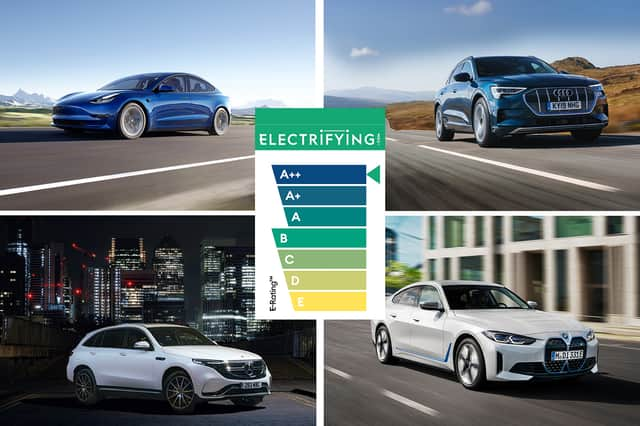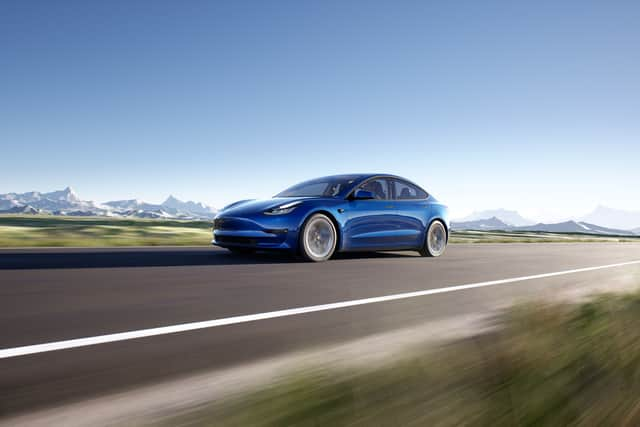New rating system ranks EVs’ real-world efficiency: These are the best and worst performing models


A new system which claims to give an accurate real-world rating for electric vehicle performance has been launched to help buyers choose the right car for them.
Its creators say the E-Rating ranking aims to create a standard energy rating system for EVs in a similar way to the existing one for household appliances, or MPG figures for combustion cars.
Advertisement
Hide AdAdvertisement
Hide AdLike the household rating, vehicles are ranked from A++ to E depending on how well they use their energy as well as how quickly they charge and what technology they feature to reduce power consumption.
Much of the discussion around EVs focuses on their stated maximum range but how well they use their energy is actually key to keeping down running costs.


The first rankings reveal that drivers with the most efficient models will save more than £500 a year in charging costs compared with owners of the least efficient ones.
The BMW i4 and Tesla Model 3 were revealed as the most efficient cars currently on sale, both attaining an A++ rating.
Advertisement
Hide AdAdvertisement
Hide AdThirteen other models, including the Mercedes EQS, Citroen Ami and e-C4, and SEAT Mii, all attained A+ rating, with 12 more awarded an A.
The Mercedes EQV van was the only vehicle to be given the lowest E rating, although the Audi e-tron and Mercedes EQC luxury SUVs both only merited a D, according to the system.
Loading....
The rankings use an algorithm that considers how well electrical power is converted into miles on the road, the speed at which the battery can be recharged and features such as heat pumps, energy recuperation and climate control preconditioning that all help to minimise power use.
While the biggest difference in costs were between the very different i4 and EQV, the figures also showed clear savings between comparable models, with the Tesla Model Y offering a saving of £176 over 10,000 miles compared with a Volvo XC40 Recharge.
Advertisement
Hide AdAdvertisement
Hide AdGinny Buckley, founder of Electrifying.com, said: “It amazes me that until now we haven’t had an effective efficiency standard for electric cars, as we do across other sectors; but we’ve looked to put this right.
“As electricity costs less than petrol or diesel, it is easy to dismiss the efficiency of electric cars and think it isn’t important. But the costs of a less efficient model can soon add up. Perhaps more importantly, an electric car that is more frugal will go further and spend less time charging, meaning greater convenience for consumers.”
The approach has been welcomed by AA president Edmund King, who commented: Anything that helps consumers decide on the most efficient EV for their needs in simple terms can only be a positive thing.
“Drivers need to research a range of factors based on their individual needs before deciding on any type of vehicle, and efficiency is a major factor for many.”
Comment Guidelines
National World encourages reader discussion on our stories. User feedback, insights and back-and-forth exchanges add a rich layer of context to reporting. Please review our Community Guidelines before commenting.
